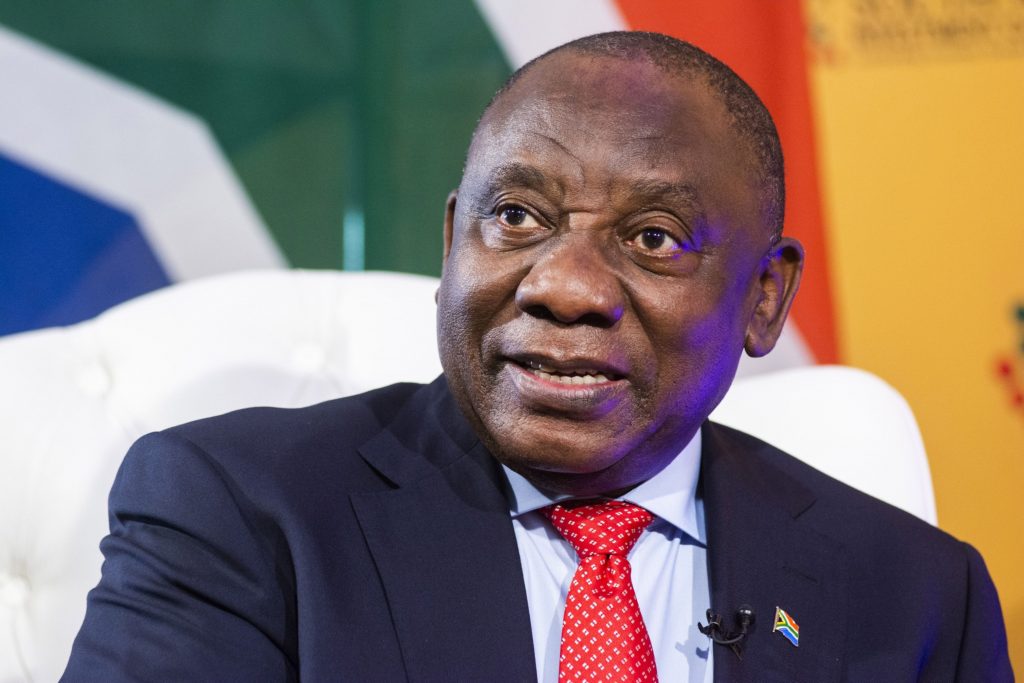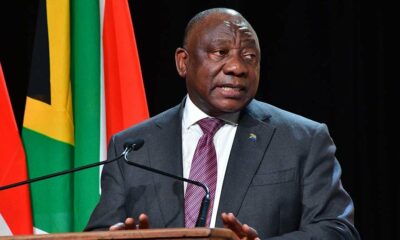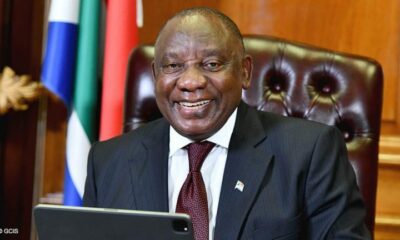News
Ramaphosa Hails South Africa’s Grey List Exit as a Turning Point for the Economy

A Major Step Toward Restoring Financial Trust
President Cyril Ramaphosa has hailed South Africa’s removal from the Financial Action Task Force (FATF) grey list as proof that the country is finally turning the corner in its long fight against corruption and financial crime.
In his weekly letter to the nation, Ramaphosa described the delisting as a “milestone moment” for the country’s economy and reputation. “Our exit from the grey list bodes well for the integrity of our financial system, our investment appeal, and our overall economic outlook,” he said.
The announcement marks the end of more than two years under FATF’s increased monitoring after South Africa was flagged in 2023 for weaknesses in its anti-money-laundering and counter-terrorist-financing systems.
From Caution to Confidence
The FATF, an international watchdog that combats global financial crime, had originally cited 22 deficiencies in South Africa’s financial controls. These included insufficient investigation of money-laundering networks and poor use of intelligence from the Financial Intelligence Centre (FIC).
Now, FATF says South Africa has made “significant progress” in strengthening oversight, improving the tracking of beneficial ownership (to reveal who truly owns companies), and tightening enforcement against illicit cash flows. FATF President Elisa de Anda Madrazo commended the country for “sharpening its tools to detect money laundering and terrorist financing.”
Ramaphosa credited a multidisciplinary team led by the National Treasury, working with the Reserve Bank, FIC, and law-enforcement bodies, for achieving the turnaround.
What Grey Listing Cost South Africa
When the FATF grey-listed South Africa in 2023, investors grew wary. The label signalled that the country was a “high-risk jurisdiction,” making cross-border transactions and foreign borrowing more expensive. It weakened business confidence, contributed to currency volatility, and limited access to global financial services.
Ramaphosa acknowledged those impacts. “Grey listing meant higher costs of doing business, reduced investment, and greater pressure on the fiscus. It hurt ordinary citizens through a weaker rand and higher living costs,” he said.
Reforming from the Inside Out
The President noted that government reforms since 2022 have expanded the powers of the Financial Intelligence Centre and introduced strict rules on company ownership disclosure. These changes make it harder for corrupt actors to hide illicit funds behind shell companies or family-owned fronts.
Legislation has also been updated to allow stronger oversight of non-profit and financial institutions and to better investigate terrorist-financing cases. Ramaphosa said these reforms are part of a broader effort to rebuild the institutions hollowed out during the state-capture era.
The Road Ahead
While celebrating the achievement, Ramaphosa cautioned against complacency. He urged ongoing vigilance to prevent the country from slipping back into old habits.
“Exiting the grey list shows that our anti-money-laundering system is finally beginning to act against corruption,” he said. “But much work remains to ensure quicker investigations, prosecutions, and convictions for financial crimes.”
For citizens and businesses, the delisting offers hope. With renewed investor confidence and fewer barriers to international finance, the rand could strengthen, and borrowing costs may ease. More importantly, it signals that South Africa’s efforts to restore credibility and rebuild trust in its institutions are starting to bear fruit.
Follow Joburg ETC on Facebook, Twitter, TikT
For more News in Johannesburg, visit joburgetc.com
Source: IOL
Featured Image: Moneyweb



























